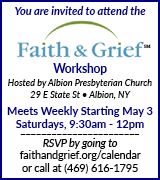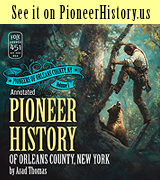Documentary focuses on immigration crisis at WNY dairies
‘This absurd, unjust system is easy enough to fix. It will just take a little courage from Congress to do so.’
– documentary producer Roy Germano

Image from Vice News – Cows are pictured in a milking parlor at a dairy farm in Western New York.
New York’s dairy industry is growing, and it’s especially hot in Western New York with new yogurt plants opening in Batavia. Farmers don’t need to worry about a supply for their product.
The state’s farms generate about $5 billion in sales, and about half comes from dairy producers. We’re the third-leading dairy state and the top producer of yogurt in the country.
However, the industry is vulnerable because of a broken immigration system, a new documentary highlights. Roy Germano was in the area in April, talking to dairy farmers, workers, an immigration attorney, a retired immigration officer and others affected by the issue.
Vice News on Wednesday debuted the documentary, “Immigrant America: They Steal Our Jobs?” Germano says dairy farms have grown larger, requiring 24-hour milking operations. Workers from Mexico, many without legal documents to be in the country, typically are working the overnight shifts at the dairy farms, doing “a dirty monotonous job that most Americans don’t want to do.”

Vice News – A federal program that allows farmers to hire foreign workers legally can’t be used by dairy farmers because the dairy jobs aren’t considered seasonal.
Fruit and vegetable farms have access to legal foreign workers through the H2A program, but the federal government hasn’t made that possible for dairies because the work isn’t considered seasonal. Dairies haven’t had much success finding local Americans to work the night shifts.
Many dairies say they have been forced to hire Mexicans who don’t have proper documents. They are hard-working and dedicated, but they are also vulnerable to sudden removal by immigration officers. Germano interviews one dairy farmer who will soon have long-term milking employees deported.
“I am tired of the inaction in Washington,” a WNY dairy farmer tells Germano. “We’re trying to run a business. We’re the ones caught in the crosshairs between the government that makes the laws and the other agency that has to enforce the laws.”
The dairy farmer says he and others in the industry don’t have legitimate access to foreign workers for their farms. (Germano doesn’t identify the farmer because he fears retaliation from ICE.)
“What incentive is there to grow our business when at any given time our workers can be taken away?” he said.

Vice News – Roy Germano visited local dairies for his documentary about the immigration crisis in WNY.
Germano tries working in the milking parlor and strugglesto attach the milker units to the cows teats. He pushes liquid manure with a squeegee to drains and seems overwhelmed by the smells in the parlor.
Germano wonders if any local Americans who are looking for a job would work at a dairy. He does an experiment, going to unemployment office in Batavia. He tells people looking for jobs that he has immediate openings at dairies, but they’ll have to work the night shift from 2 a.m. to noon. There are plenty of jobs for $9 an hour with housing, he tells them.
The local residents overwhelmingly declined the positions, not wanting to work on a farm especially during the night. (Some dairies are turning to robots to milk cows, and Germano shows a robot in action. The robots cost about $250,000 each and can milk about 50 cows a day, a big investment for the farms. The farms are “price takers” and can’t demand an increase in milk to pay their employees more, perhaps making the jobs more attractive to local Americans, Germano says.)
Western New York is a dairy powerhouse. The area is also home to the largest immigration detention facility in the country outside of Arizona. Immigration and Customs Enforcement officers have arrested many farm workers, often without probable cause, because of pressure to meet quotas to fill the ICE facility in Batavia, according to the documentary.

Vice News – Many local farmworkers are arrested and placed at the immigration and detention facility in Batavia.
Germano interviews a dairy worker who is soon to be deported. He is married to an American with an American child. He doesn’t want to be separated from his family. So he said he will make the dangerous journey back to the area once he is deported to Mexico.
The racial profiling by police and ICE, when farmworkers try to go to the store or church, has many rarely leaving farms, Germano says. The workers pay people to get them groceries. They don’t fully participate in community life.
Germano advocates for immigration policies that meet employer needs, and stop treating family farmers and hardworking immigrants like criminals.
“This absurd unjust system is easy enough to fix. It will just take a little courage from Congress to do so.” Germano said in concluding the documentary.
(Editor’s note: Orleans Hub editor Tom Rivers wrote “Farm Hands: Hard work and hard lessons from Western New Yorks farms.” The book is based on his experiences working at local farms in 2008. Germano said that book was part of his inspiration for the documentary on the WNY dairies.)










































































